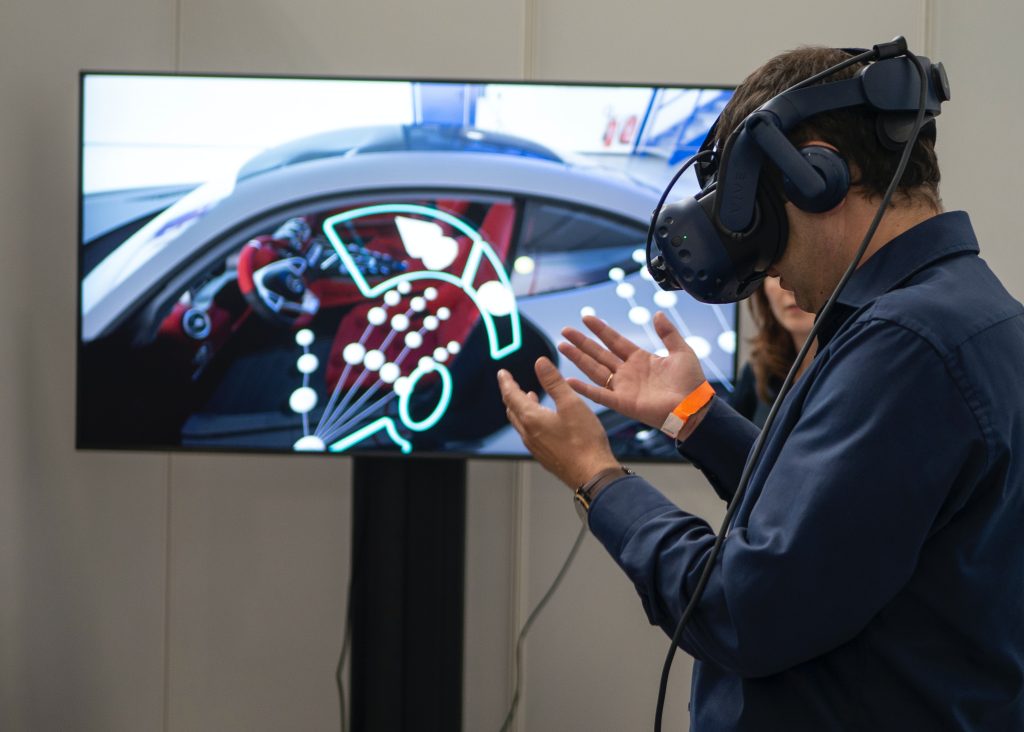News about the Metaverse is everywhere: news about it changing how we work, how we shop, how we socialise. Basically, how it will change our lives. But, instead of the wave of anticipation and excitement expected from the announcement of a futuristic VR universe, responses have been mixed. Major concerns include security and the use of personal data, as well as what a mass move of life online will do to us as an extremely social species. But is the future of the Metaverse inevitable? Or can we choose instead to embrace the Mesaverse?
So what do we mean by Mesaverse?
To call something Meta generally means that it is being self-referential, a basic example being a movie about a movie. In the case of the Metaverse, it’s describing that it is trying to reference/replicate reality. In greek Meta (μετά) as a prefix would describe something as being ‘beyond’, or ‘after.’ The Metaverse sees no value in us existing in reality, and wants to move us beyond it. However, it can’t provide us with a better existence than the real world.
So, in contrast, we have the Mesaverse. The greek word Mésa (μέσα) describes going ‘inside’ or ‘within’, so the Mesaverse is a deeper reality. A reality where your lived experiences have meaning, your relationships are fulfilling, and your existence has value. A reality gained by moving away from a life spent online, to one where you embrace the things that are really around you.

Trends show we need the Mesaverse more than ever.
Recent trends in the social media use of young people have shown that a desire for the Mesaverse is present and growing. Growing up with the internet and social media has lead to Millennials and Gen Z with various mental health, social and lifestyle problems. Soon Generation Alpha will join the game, a group of people born in the 2010s and onwards who will never have known a world that wasn’t ruled by the social media giants.
A trend to focus on is the booming popularity of BeReal, and other, similar, ‘alternative’ social media platforms. If you haven’t heard of BeReal, the premise is that the app will send you a prompt, at an unpredictable time each day, to post a photo and selfie of whatever you are doing at the time (no matter how unglamorous). The idea is to show your real authentic self to friends and family. The setup means it’s hard to build a ‘following’, and you have a limit on how many people you can follow, something that would be unheard of on other social media apps. The idea of your real self and the focus on friends and family harkens back to early social media, but is this a step in the right direction?
Just switching to an alternative social media platform won’t solve anything.
Despite BeReal’s best efforts, the quirky gimmick it employs still isn’t showing people’s “real” selves. It’s not like you HAVE to post when the app prompts you to; it’s very easy to just wait for the highlight of your day and post that. And people do. It’s impossible to not want to show our best selves to those around us; it’s why we don’t (generally) go out in our pajamas with toothpaste down the front. The problem is, if people are claiming gorgeous views, fancy drinks and perfect hair as their “real” selves, reality is lost again, and the self-esteem and FOMO of the viewers increases. We’re back to the original problem.
As long as we show our lives on the internet, this problem will persist. No app encouraging you to be your authentic self online is ever going to completely solve the problems that social media has created. We need to work our way in to the Mesaverse, a call to reconnect, to rewire and rebuild our relationship with reality.

And that’s why LifeBonder exists.
LifeBonder’s whole purpose is to move its users off social media and in to the Mesaverse. The goal is to get you forming meaningful relationships offline with people you have things in common with. The emphasis being, offline. By engaging with the people and places in your local area you form an existence for yourself within the Mesaverse. With no feed to scroll, no influencers to envy, and nothing keeping you tied to your phone screen, LifeBonder can steer users away from the future of the Metaverse. It’s going to be hard to snap back to reality after years spent living through the lens of social media and the internet, but LifeBonder can make the road a little smoother for everyone.


